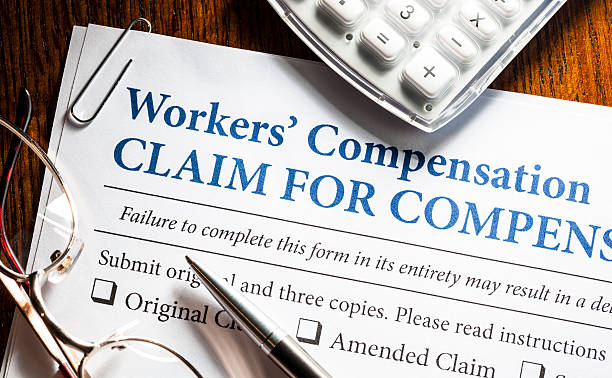They ensure that players are protected, games are fair, and casinos operate ethically.
Regulatory bodies like the Malta Gaming Authority (MGA) play a vital role in setting and enforcing these rules. Established in 2001, the MGA is renowned for its stringent standards, making it a trusted name in the online casino industry.
Players looking for trusted platforms often explore New MGA casinos to find safe and regulated gaming options.
Regulations like those from the MGA instill confidence in players, knowing their data and funds are secure.
Key Elements of Casino Regulations
Licensing and Compliance
Licensing is the first sign of a legitimate online casino. To obtain a license, casinos must meet specific requirements, such as having robust security measures, fair games, and transparent terms.
Licensed casinos undergo regular audits and comply with anti-money laundering laws. In contrast, unregulated casinos operate without oversight, often leaving players vulnerable to scams and unfair practices.
For example, a licensed casino will prominently display its licensing details, often with a clickable badge leading to the regulatory body’s verification page.
Unregulated casinos, however, may hide behind vague terms or fail to disclose any licensing information. As a rule of thumb, always verify the licensing status before signing up.
Pro Tip: If a casino’s website looks professional but lacks licensing details, avoid it. Legitimate platforms are transparent about their compliance.
Player Protection
One of the most critical aspects of casino regulations is safeguarding players. Responsible gaming policies are implemented to ensure that gambling remains a form of entertainment rather than a problem.
Regulated casinos provide tools like self-exclusion programs, deposit limits, and cooling-off periods to help players manage their habits.
For instance, if you feel you’re spending too much time or money on a casino platform, a self-exclusion feature allows you to take a break.
This proactive approach helps prevent gambling addiction and promotes healthier gaming habits.
Additionally, regulated casinos often partner with organizations like GamCare and Gamblers Anonymous to support players who need assistance.
Fair Play and Security
Fair play is non-negotiable in a well-regulated casino. Regulatory standards require that all games use a certified Random Number Generator (RNG) to ensure outcomes are entirely random and not manipulated.
RNG certification is usually conducted by third-party agencies like eCOGRA or iTech Labs, adding an extra layer of trust.
Security is equally important. Licensed casinos are mandated to use SSL encryption to protect players’ personal and financial information.
This means that every transaction and data exchange is encrypted, making it nearly impossible for hackers to intercept sensitive details.
Popular Regulatory Authorities
Several regulatory authorities oversee online casinos, ensuring they meet high standards of operation.
The Malta Gaming Authority (MGA) is one of the most respected, known for its comprehensive rules and player-first approach. MGA-licensed casinos are required to maintain financial transparency, provide fair games, and uphold responsible gaming measures.
The UK Gambling Commission (UKGC) is another prominent regulator, particularly for casinos operating in the United Kingdom. It enforces strict guidelines on advertising, game fairness, and player protection.
Other notable authorities include the Gibraltar Gambling Commissioner and the Isle of Man Gambling Supervision Commission.
Choosing a casino regulated by one of these authorities significantly reduces the risk of fraud.
How Regulations Benefit Players
Regulations are not just for compliance; they directly benefit players. One of the most significant advantages is the assurance of timely payouts.
Licensed casinos are required to process withdrawals promptly and fairly, preventing situations where players face unnecessary delays or outright non-payment.
Regulated casinos also offer dispute resolution mechanisms.
If a player encounters an issue, such as a game malfunction or unfair treatment, they can escalate the matter to the regulatory body.
This ensures that players have a fair chance of resolving disputes.
Moreover, regulations protect players from fraud. Licensed casinos must verify their users’ identities to prevent identity theft and other fraudulent activities.
This verification process, while sometimes cumbersome, is a vital safeguard for both players and the platform.
Red Flags in Unregulated Casinos
Unregulated casinos often cut corners, leaving players at risk. A glaring red flag is the absence of licensing information. Legitimate casinos display their license details prominently, whereas unregulated platforms may avoid the topic altogether.
Another warning sign is poor user reviews.
While no casino is perfect, consistent complaints about delayed payouts, rigged games, or unresponsive customer support are clear indicators of trouble. Additionally, vague or unclear terms and conditions often signal a lack of accountability.
For example, a casino that states “payouts may take up to 60 days” without further explanation is likely trying to avoid scrutiny.
If you encounter any of these red flags, it’s best to steer clear and find a more reputable platform.
Pro Tip: Use review aggregator websites or forums to check a casino’s reputation before committing your time and money.
Final Tips for Choosing a Safe Casino
Choosing a safe online casino doesn’t have to be complicated. Start by verifying the licensing information.
Trusted platforms will include this in their footer, complete with a clickable link to the regulatory body’s verification page. Next, read the terms and conditions carefully. While it’s not the most exciting task, understanding the rules can save you from unpleasant surprises later.
Look for casinos with transparent bonus policies. Many platforms offer enticing welcome bonuses, but the terms can be restrictive.
Ensure the wagering requirements are reasonable and achievable. Also, prioritize casinos that use secure payment methods like PayPal or Skrill, as these offer additional layers of protection.
Lastly, test the customer support. A reliable casino will have responsive support available via live chat, email, or phone. Quick and helpful responses are a good sign that the platform values its players.
Conclusion
Casino regulations are the foundation of a safe and enjoyable online gaming experience.
They protect players, ensure fair play, and hold casinos accountable. By choosing a licensed and regulated platform, players can enjoy peace of mind and focus on the entertainment aspect of online gaming.
Remember to always verify licensing details, read terms and conditions, and prioritize platforms with strong player protection measures.
A little due diligence goes a long way in ensuring a safe and rewarding experience. By following these guidelines, you can confidently navigate the world of online casinos while staying secure and in control.




